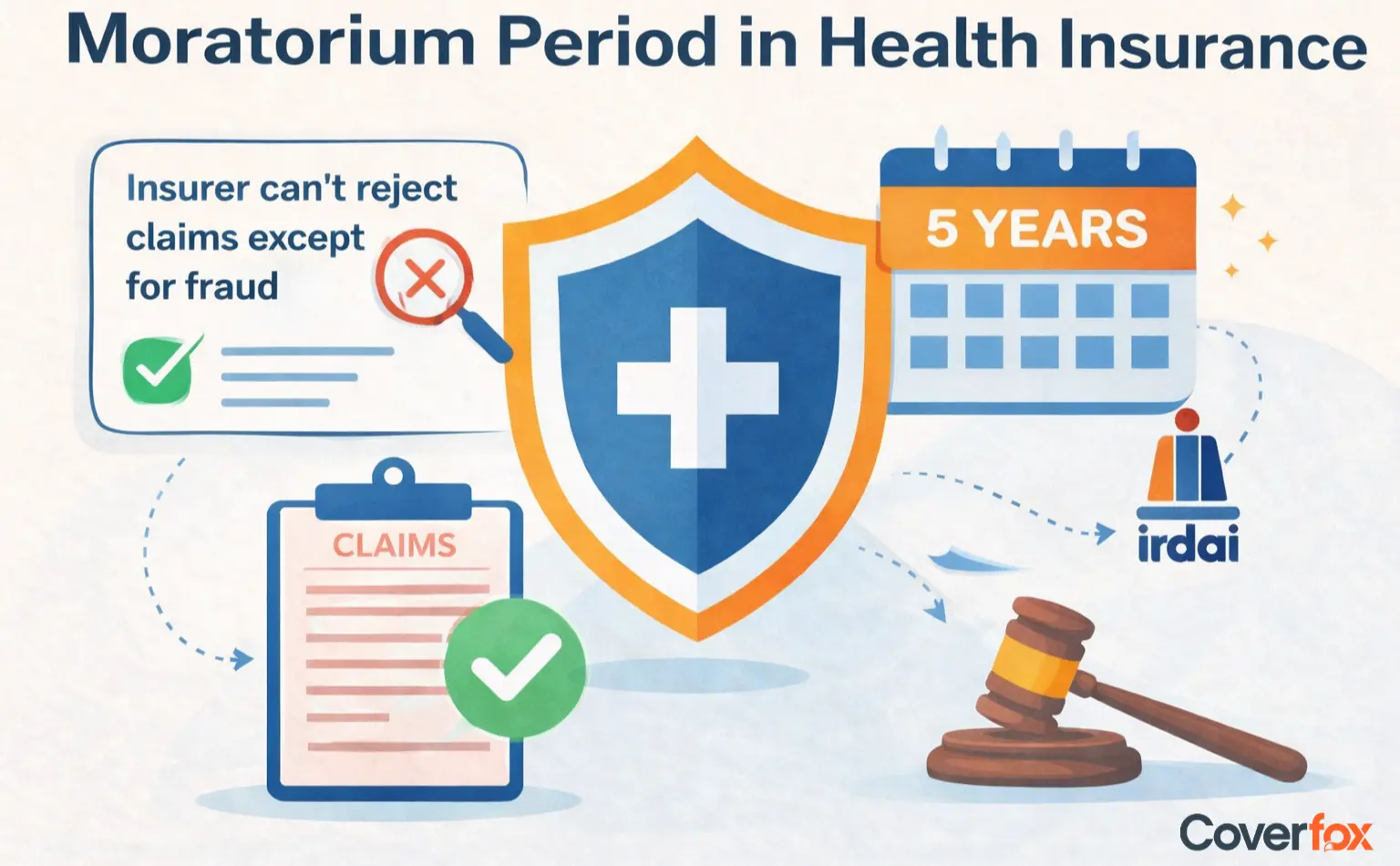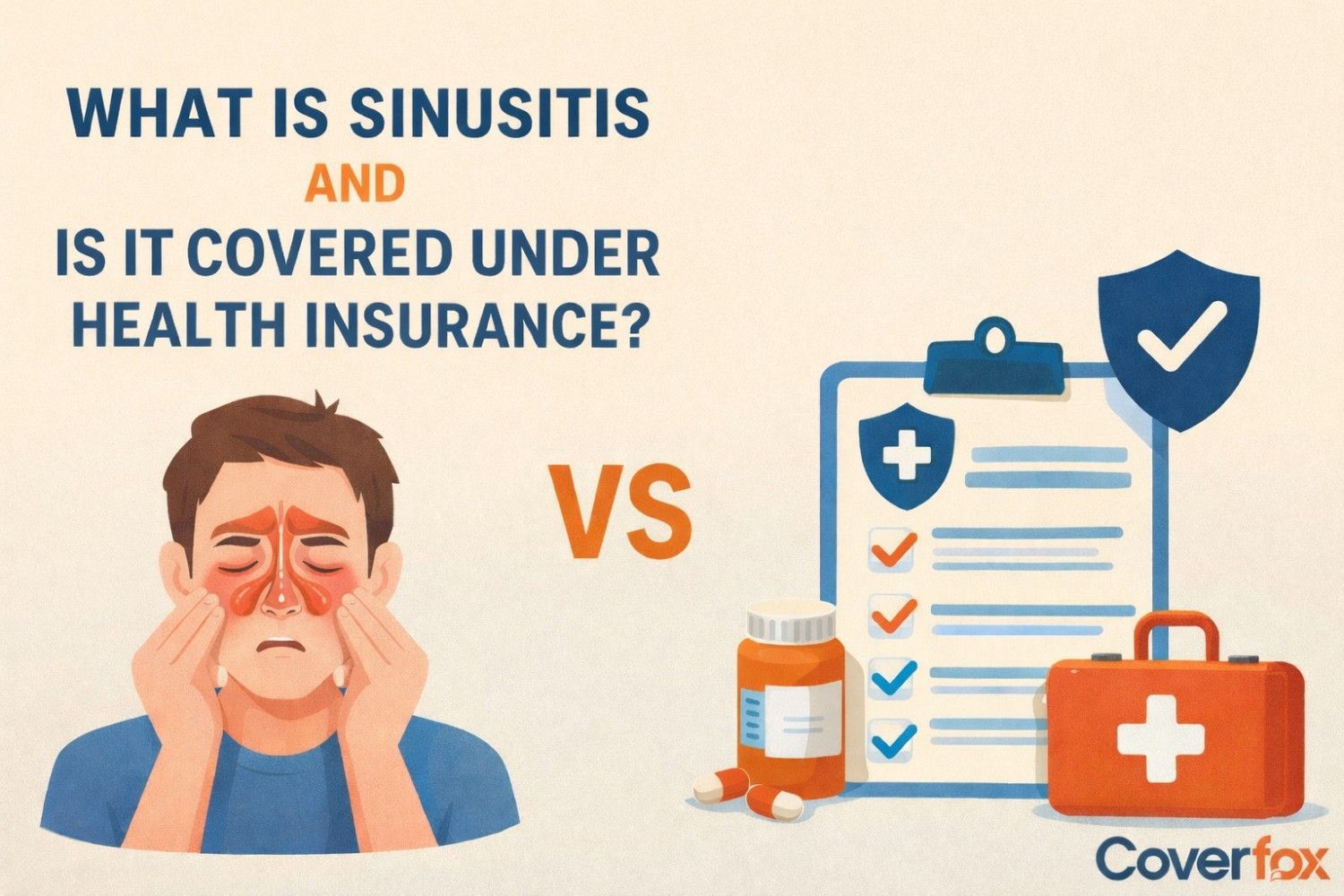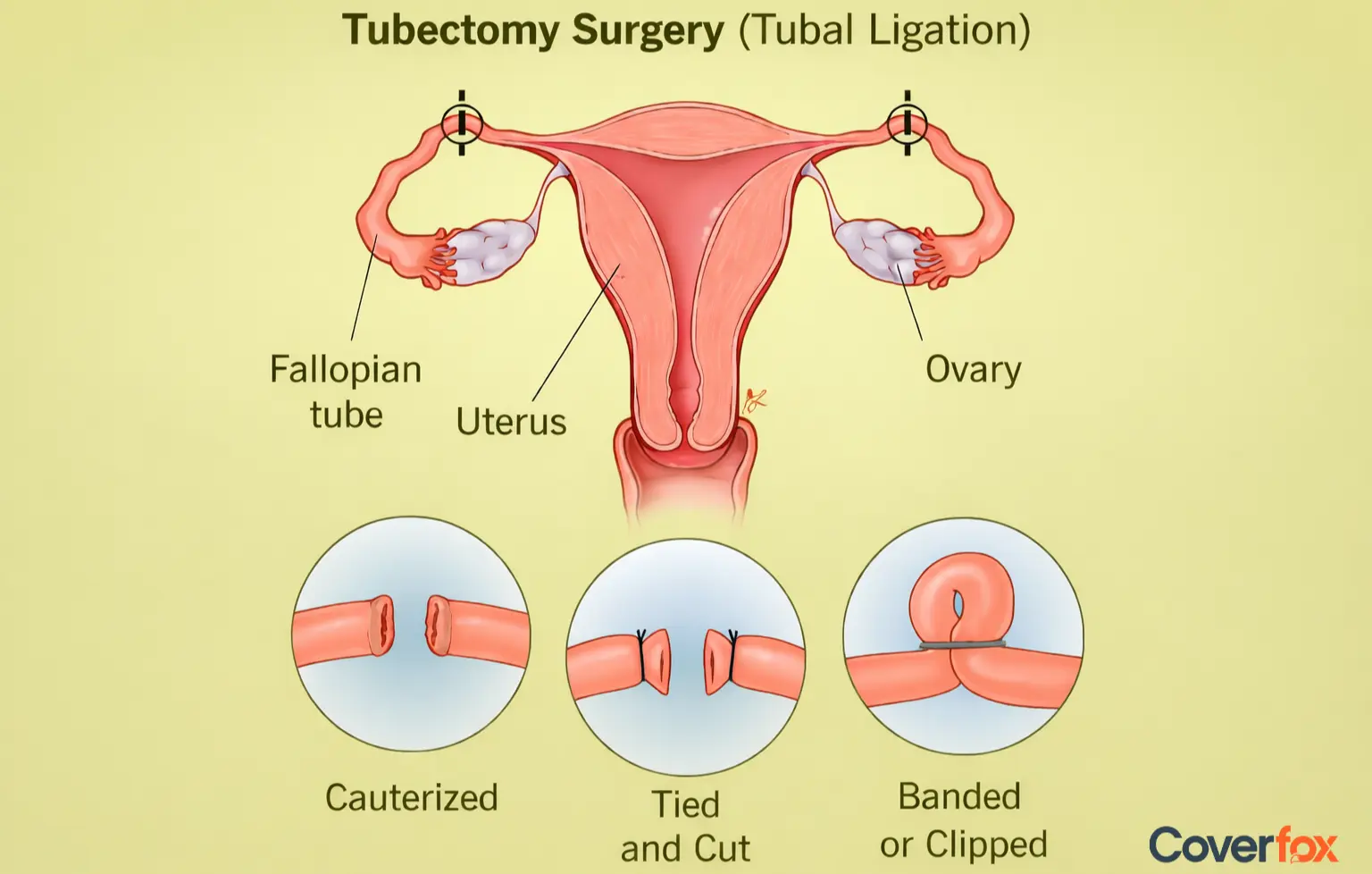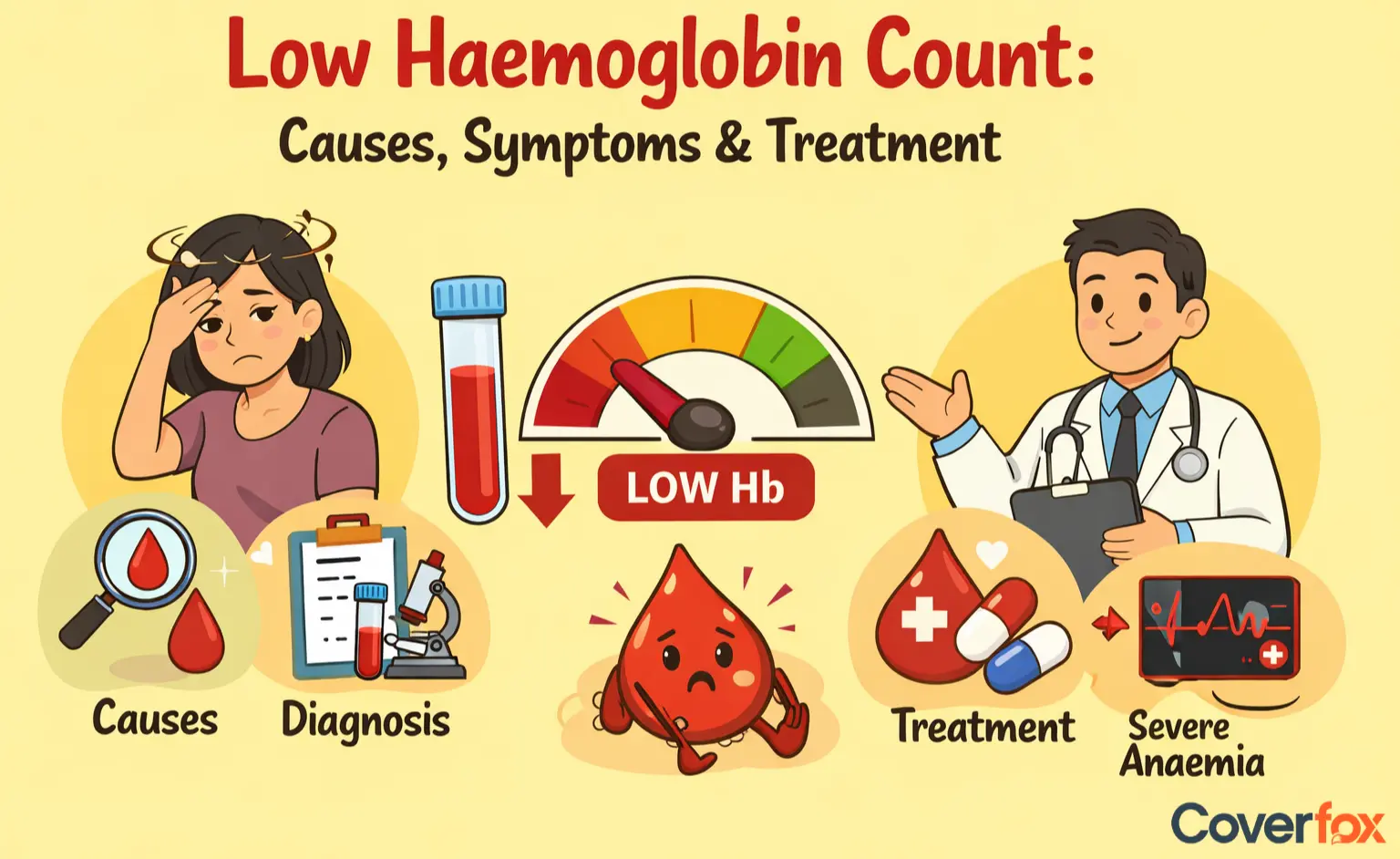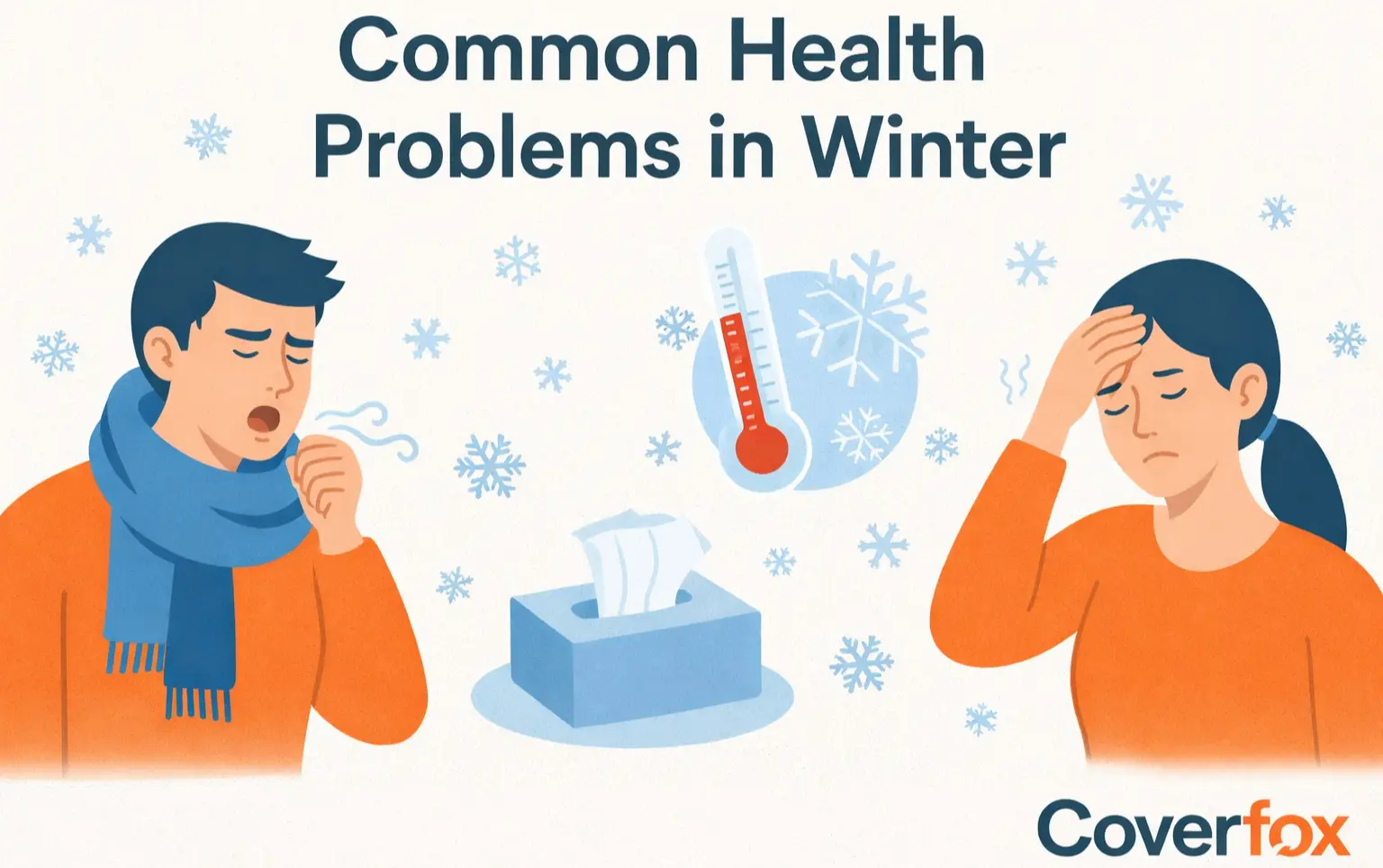Carbohydrates are known to provide energy to the body in the form of glucose. These are found in various vegetables, rice, bread, or fruits and ultimately provide the body with the fuel it needs to carry out daily activities like walking, working, or even thinking.
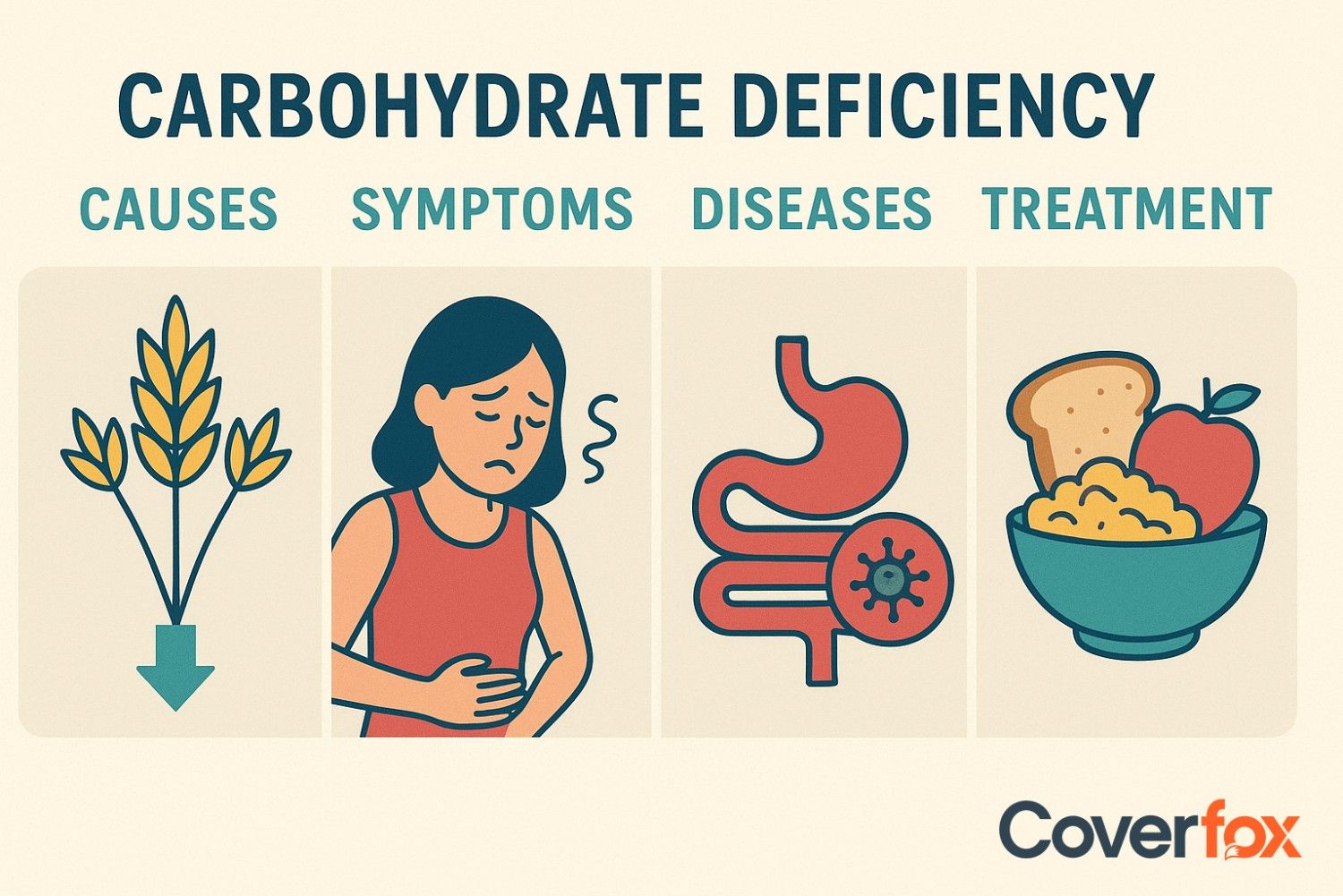
However, sometimes people tend to cut down on carbohydrates for fitness reasons, which ultimately leads to a deficiency of carbohydrates. This can further lead to serious health problems known as carbohydrate-deficiency diseases.
This blog explores what happens when the body lacks enough carbohydrates, the symptoms and causes of deficiency, and how a health insurance policy can help manage associated healthcare costs.
What Does Carbohydrate Deficiency Mean?
Carbohydrate deficiency occurs due to none or very few carbohydrates received from a regular diet. Since carbohydrates are a macronutrient that acts as a primary source of energy for the body, they help keep the body active and the brain sharp. Reducing carb intake may be done to lose weight, which causes a deficit of carbohydrates in the body and could ultimately lead to serious medical disorders.
Mostly, these disorders can affect individuals such as:
- People with stomach, heart, obesity, or cancer problems.
- Anyone not eating a balanced diet with enough carbohydrates.
What Diseases are Caused by Carbohydrate Deficiency?
Check out the list of various carbohydrate deficiency diseases mentioned in the table below:
| Disease | Description |
|---|---|
| Diabetes | Blood sugar (glucose) levels are too high. |
| Galactosemia | A genetic condition where the body cannot break down the sugar galactose. |
| Ketosis | Body burns fat instead of glucose for energy, often due to a low-carb diet or metabolic state. |
| Hunter Syndrome | Genetic disorder caused by enzyme deficiency affecting sugar breakdown in the body. |
| Hurler Syndrome | Genetic disease caused by lack of an enzyme needed to break down complex sugars. |
| Mucopolysaccharidoses | Rare inherited disorders where the body cannot break down long sugar chains properly. |
| Mucolipidosis | Rare genetic lysosomal storage disorder impacting normal cell function. |
| Pompe Disease | Genetic disorder causing progressive muscle weakness due to enzyme deficiency |
What are the Symptoms of Carbohydrate Deficiency?
Take note of the carbohydrate deficiency symptoms given below:
| Symptom/Effect | What It Means |
|---|---|
| Low Energy | Carbs give energy; without them, you feel tired and weak. |
| Low Appetite | Digestion slows down, so you may not feel hungry. |
| Nausea and Dizziness | You may feel sick and dizzy without enough carbs. |
| Constipation | Lack of fibre from carbs can cause constipation. |
| Bad Breath | Burning fat instead of carbs produces ketones that smell. |
| Dehydration Risk | Fruits and veggies with carbs help keep you hydrated. |
| Weak Muscles | Muscles need carbs for energy; without them, you tire easily. |
| Mood Changes | Low carbs can cause mood swings or sadness due to less serotonin. |
| Malnutrition Risk | Carbohydrates are needed for a balanced diet. |
| Ketosis Symptoms | Very low carbs cause tiredness, weakness, and brain fog or mental confusion. |
What are the Causes of Carbohydrate Deficiency?
The various carbohydrate deficiency causes include:
Poor Diet
Carbohydrate Intolerance
Strict Low-Carb Diets
Chronic Illnesses
Malnutrition
Eating very little or no food rich in carbohydrates, like grains, fruits, and vegetables.
Sometimes, the body cannot properly digest certain types of carbohydrates.
Diet plans like keto that avoid or greatly reduce carbohydrate intake.
Long-term diseases affecting the gut, liver, or pancreas that lower how well carbohydrates are absorbed.
Not eating a balanced diet leads to low energy and a lack of important nutrients.
Carbohydrate Deficiency Diseases Treatment
Here are certain preventive measures that could help treat diseases caused by a deficiency of carbohydrates:
Include More Carbohydrates
Learn About Nutrition
See a Dietician
Manage Health Conditions
Add enough carbohydrates to your meals, focusing on whole grains, fruits, and vegetables (like oats, beetroot, apples and brown rice) for better nutrition and fibre.
Educate yourself on why carbohydrates are important so you can make healthy food choices and avoid future deficiency. For adults, it is recommended to have an intake between 225 and 325 grams of carbs daily.
Work with a registered dietician to get a balanced meal plan that fits your health goals and ensures enough carbohydrate intake.
Treat any medical problems that reduce carb absorption, such as gut or metabolic disorders.
Why Health Insurance Matters?
A health insurance policy is a crucial safety net to cover the costs of various carbohydrate-deficiency diseases. There are many benefits of health insurance, including providing coverage for doctor visits, tests, and medicines, and even consultations with a dietician. Also, in case your condition gets serious, it can help cover costs related to hospital stays and emergency care.
Head over to Coverfox to easily compare and review a wide range of policies from trusted insurers in the country, till you find the one that fits both your budget and needs!
Wrapping Up
In all, knowing the causes, symptoms, and various diseases of carbohydrate deficiency can help you stay informed and take timely action to get healthy. In addition, having a good health insurance policy can also help provide valuable financial coverage for expenses related to carbohydrate deficiency diseases.
Here is where platforms like Coverfox offer the benefit of seamless comparisons, secure purchasing, and easy renewals, all in a single place, so you have no hassles at your end!
Also Read:
What Are Universal Donor and Receiver Blood Groups?
What Are the Normal Creatinine Level Ranges? A Complete Guide
Frequently Asked Questions
What happens if the body lacks carbohydrates?
If there is a deficiency of carbohydrates in the body, it can lead to fatigue, weakness, dizziness, brain fog, and serious metabolic problems.
Why are carbohydrates important in nutrition?
Carbohydrates are a vital macronutrient that are known to be the primary source of energy for the body. It is broken down into glucose to help fuel various organs and cell tissues of the body.
Which foods provide good carbohydrates?
Food items that are rich in carbohydrates include rice, wheat products, lentils, potatoes, fruits, and other starchy vegetables.
How do carbohydrates help the brain?
Carbohydrates ensure a continuous supply of glucose to the brain, helping enhance memory, concentration, and decision-making abilities.
Can carbohydrate deficiency be reversed?
Yes. It requires eating a balanced diet with enough carbohydrates and managing nutritional intake to reverse the effects of deficiency.
Does a lack of carbohydrates cause weight loss?
Yes, a sudden deficiency of carbohydrates can cause weight loss in the short term, but it is not beneficial for the long term, as it could lead to various disorders.
How quickly do symptoms of carbohydrate deficiency appear?
Depending on individual health and the seriousness of the condition, it may take from up to a few days to a week for the symptoms to appear.
Can low-carb diets lead to carbohydrate-deficiency diseases?
Yes, it can. Diet plans like keto could greatly reduce carbohydrate intake, which is why it is recommended to consult a dietician before starting any such diet.

